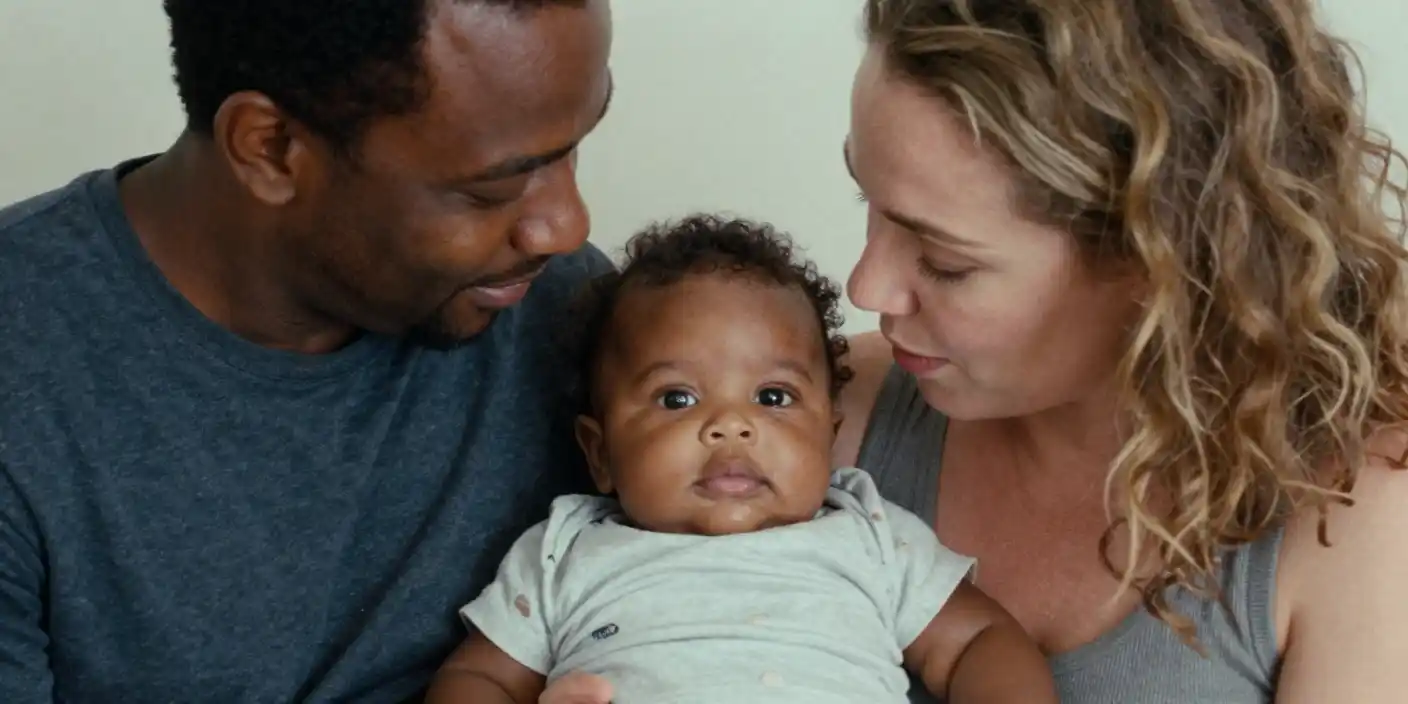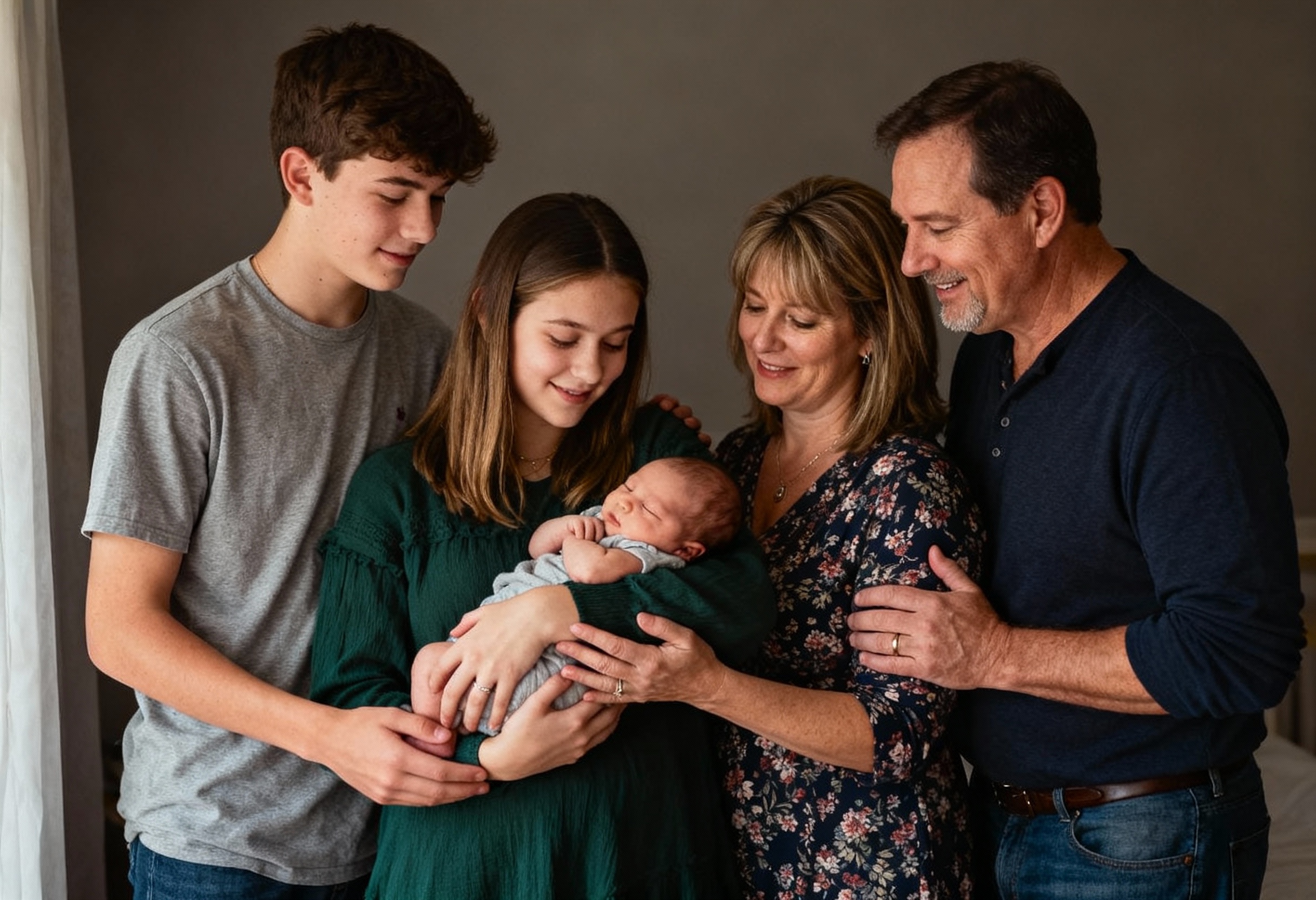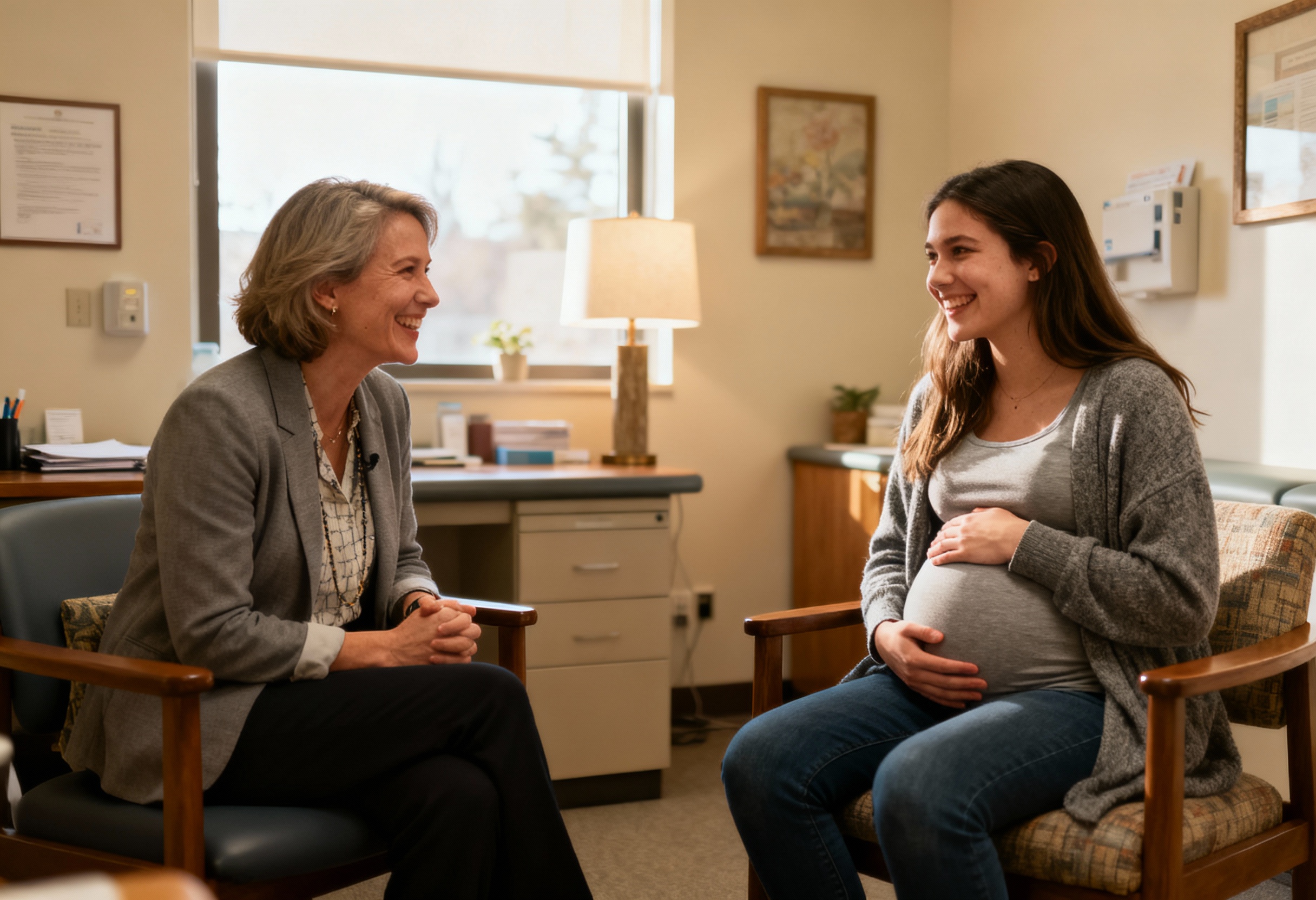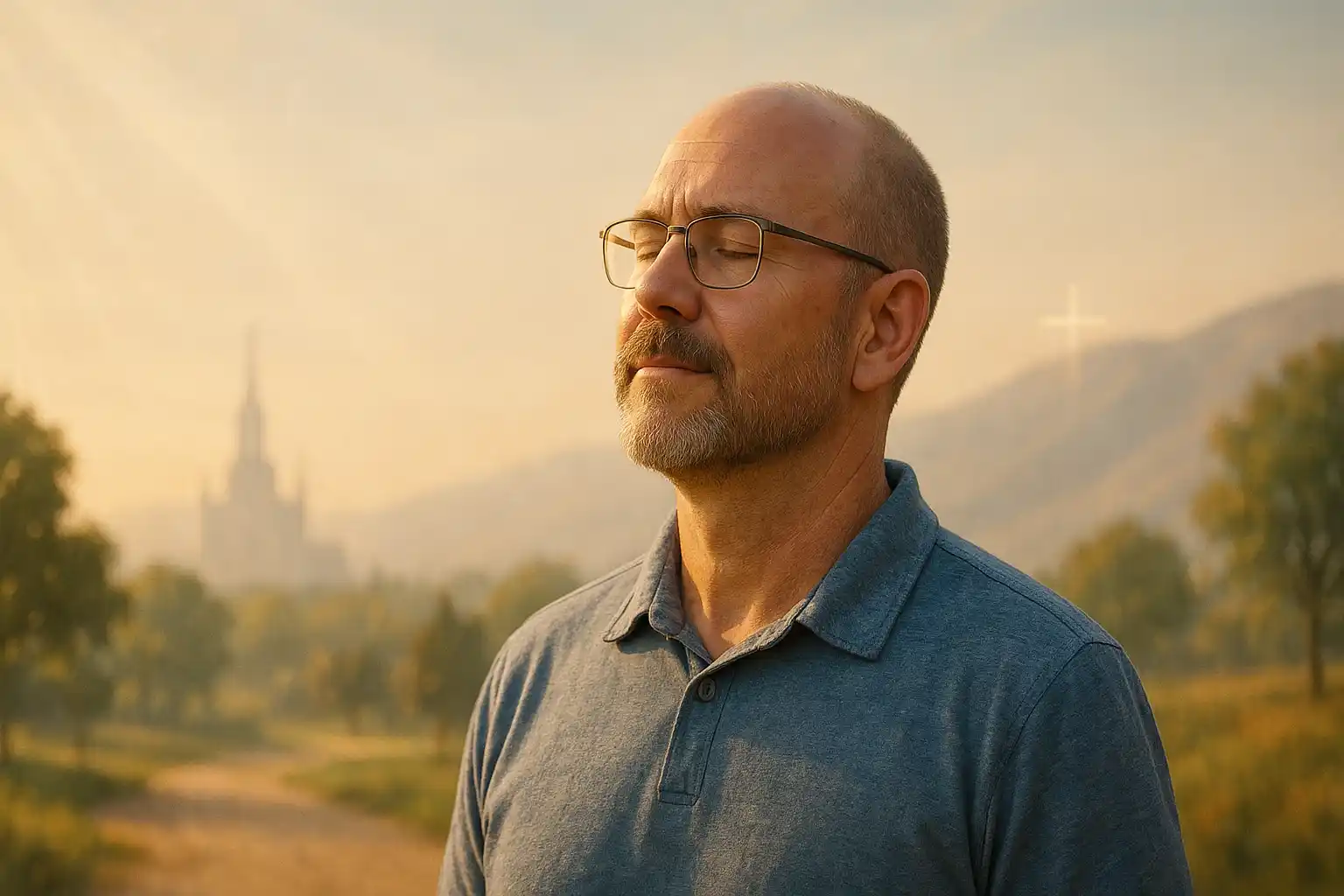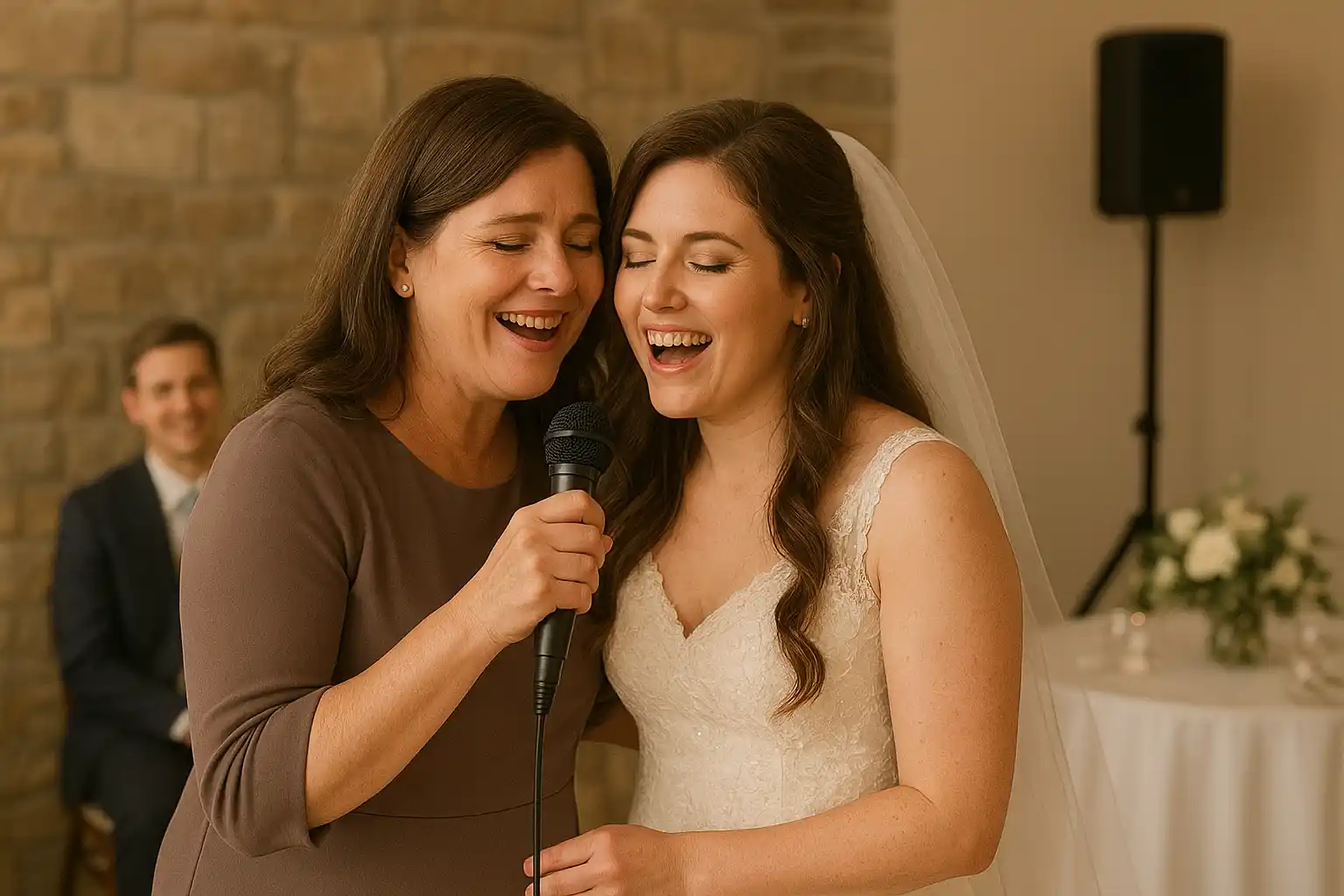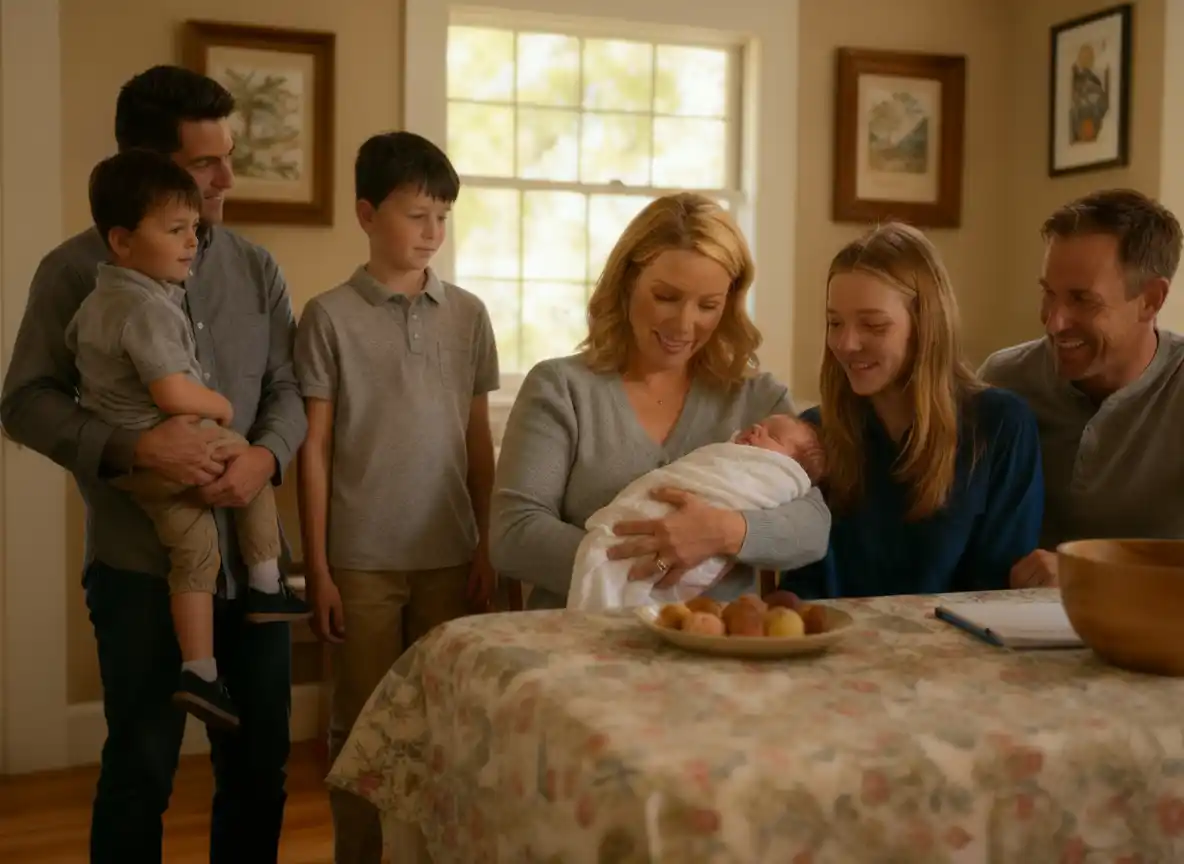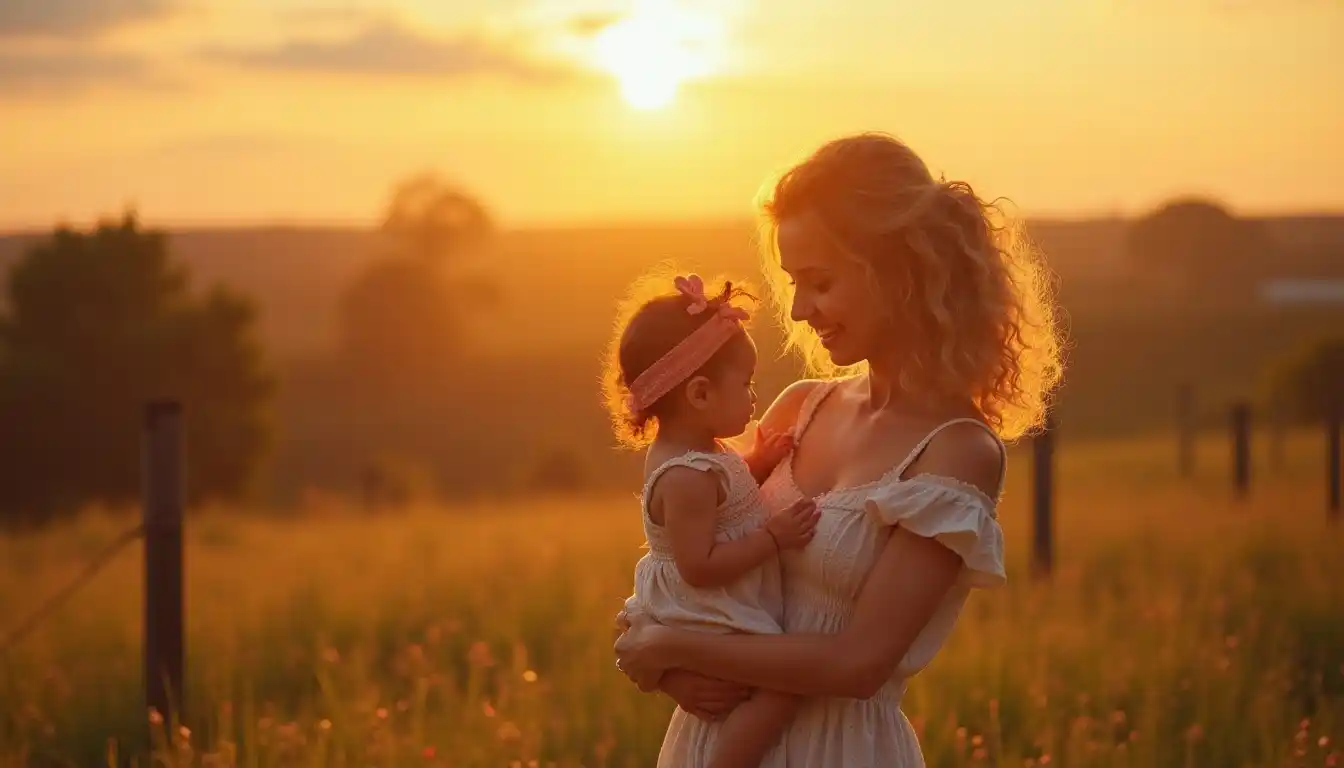Loving the Children God Sends: The Hilton Family’s Story of Faith and Adoption
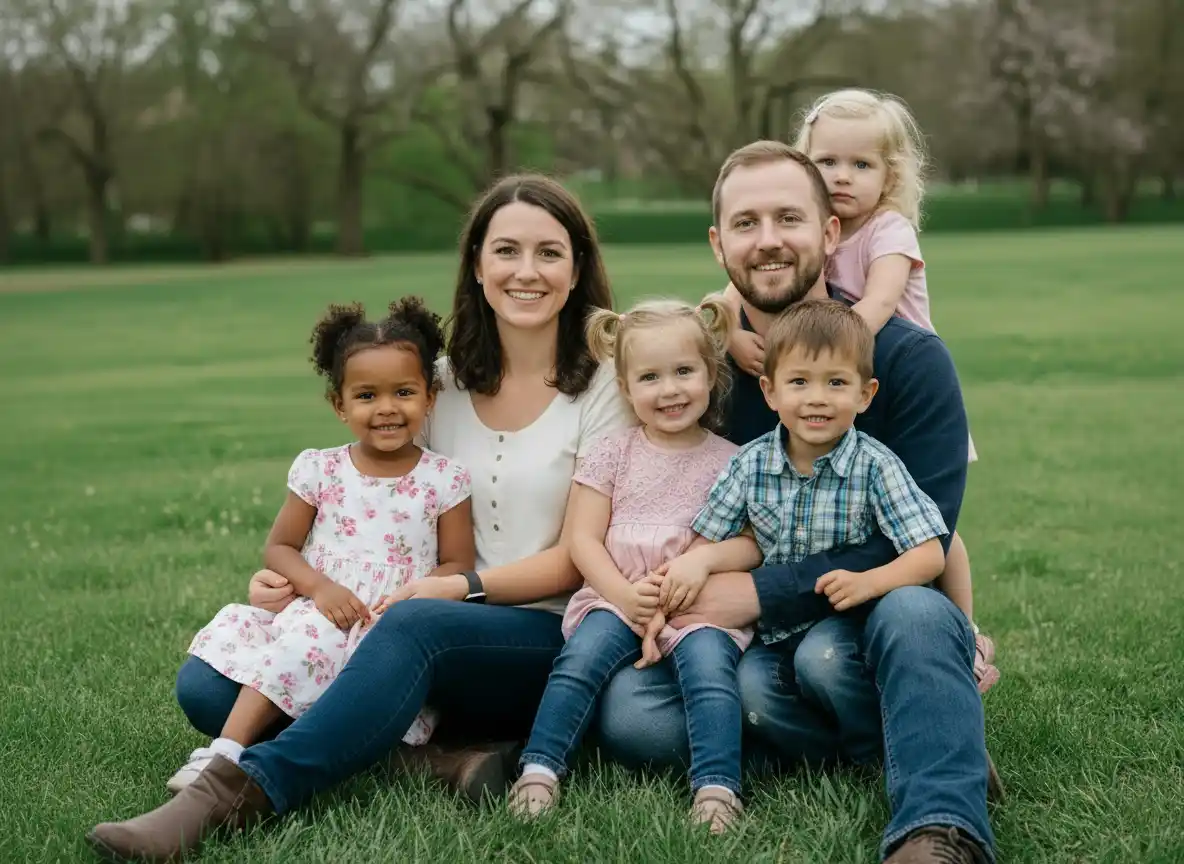
Brett and Bonnie Hilton have been married for 34 years and are parents to nine children. Four quadruplets born at 24 weeks through surrogacy passed away shortly after birth in 1993. Five children joined their family through adoption, including two domestic infants through LDS Family Services, two toddler biological sisters from Ukraine, and a special needs infant named Isabella who lived for two weeks.
Bonnie was born without a uterus and discovered this diagnosis at age 14, devastating news for a young Latter-day Saint girl surrounded by talks about partnering with the Lord to bring children to earth. In this episode of Eternal Family Adoptions, host Donna Pope explores Brett and Bonnie's journey through multiple adoption paths and the spiritual experiences that guided them.
Discovery at 14 and the Path to Surrogacy
Bonnie describes finding out at 14 that she couldn't bear children as devastating. She was the kind of person who liked to think she could try and do anything, but this was out of her control. When she started dating seriously, this conversation always came up. Sometimes relationships end because the person has never considered adoption. When Bonnie told Brett, his response differed completely. His mother had struggled with infertility, and he'd grown up hearing those stories, so adoption wasn't out of the ordinary for him.
Before deciding to adopt, Brett and Bonnie prayed about how to grow their family. During general conference while living in Knoxville, Tennessee, a woman from their ward approached them after the final session. She asked to speak privately and told them that during Elder Ballard's talk on sacrifice, she was told to carry a child for them. Brett and Bonnie had never considered surrogacy. The woman said she knew what she was told, and now they needed to decide what to do.
After prayer and medical confirmation that Bonnie had functioning ovaries, they moved forward with embryo transfer. Miraculously, the surrogacy resulted in quadruplets. The pregnancy was high risk, and all four babies were born living at 24 weeks. One by one, they passed away. This happened 31 years ago, shaping their understanding of parenthood and eternal families in ways they couldn't have anticipated.
Domestic Adoption and Financial Concerns
After the quadruplets passed, Brett and Bonnie worked with LDS Family Services to adopt. They experienced three or four failed placements as they tried multiple avenues. Those failures tore them up emotionally. Looking back now after nine adoption experiences, Brett says if he could do it over, he would be calm and enjoy it. He wouldn't care about the birth parents' circumstances because he would just love them and enjoy the whole process.
Bonnie handled the adoption process differently than Brett. She felt more tied to the child, thinking about who the child was and what they would name them. Brett worried more about finances and how adoption would impact their budget. Looking back, Brett says he wouldn't worry about money, though at the time, it felt overwhelming. According to the Child Welfare Information Gateway, understanding financial resources and assistance programs helps adoptive families manage costs more effectively.
When LDS Family Services was handling adoptions, they subsidized quite a bit. The first adoption didn't cost much, and the second cost slightly more because they were earning more income. The windows of heaven opened at different times. They successfully adopted two infants domestically, and Brett says the love he felt for them was immediate and absolute.
International Adoption and Navigating Cultural Differences
Years after adopting their two infants, Brett and Bonnie felt prompted to adopt internationally. They traveled to Ukraine in the early 2000s before the Hague Convention, which now safeguards international adoption. During their time in Ukraine, officials kept asking for money, and Brett started requesting receipts. Their lawyer said in broken English that they should play with the children and let the lawyers handle the adoption.
Brett watched as facilitators would hand chocolates, expensive wine, and envelopes full of cash to officials. The cash went under the table; everyone spoke in Ukrainian, and then they would leave for lunch and return two hours later. What took days of paperwork without cooperation happened in hours with it. Brett didn't understand and called their social worker Roger to complain.
Roger told him about adopting a handicapped boy from St. Petersburg, Russia. When officials asked for money and Roger refused, he got one child out but the other remained stuck for another year to eighteen months even though paperwork was complete. Roger felt sad that his boy stayed in an institution for over a year when he could have been home. After hearing that story, Brett understood. In American culture, you go to court and fight corruption. But in Ukraine, the bigger picture was getting children home through a different cultural system. According to the U.S. Department of State, the Hague Convention has improved transparency and child-focused processes in international adoption.
Blocked Care and Bonding with Older Children
Brett and Bonnie adopted two biological sisters from Ukraine, one almost four years old and one almost two years old. This created a completely different bonding experience than adopting infants. Bonnie experienced what she now knows is called blocked care. The love didn't come automatically or naturally like it had with the infant adoptions. She felt like she was failing as a mother because these two girls needed to feel loved and cared for most of all, yet those feelings weren't immediate.
When Bonnie prayed about it, the Lord told her she was exactly what these girls needed. That surprised her because she didn't feel capable. Then He said she was able, and that became her mantra. I am able. But it took years, not days or weeks. It took years of serving, helping, teaching, singing with them, playing piano with them, taking them to school, jumping on trampolines, and just being present.
Bonnie notes that the biggest difference between when they adopted and today is the training and preparation available for families. Today, adoptive parents can prepare for challenges like blocked care and attachment issues so they aren't taken by surprise when things don't feel quite right immediately. As The Church of Jesus Christ of Latter-day Saints teaches about adoption, families who prepare spiritually and practically experience better outcomes.
Children Are Assigned in the Pre-Existence
Brett has a clear belief about family formation. He spent most of his life thinking about where children come from, looking at his brothers and sisters, and wondering how families form. He concluded that in family formation, there's only one decision parents make, and that's who they marry. Everything else about which children come is already determined. Brett has convinced himself through multiple spiritual experiences over many years that there are no accidents in who children are that come to your family, whether born naturally or adopted.
Their relationships with each child are different, but Bonnie points out that's true for biological children too. With her son Isaac, she has a special place in her heart even though he's surrounded by three sisters. With Rebecca, their relationship evolved dramatically. Rebecca was labeled the terrorist by her siblings during her teenage years. She told Bonnie once that she wanted to go contrary to every standard of the church.
Recently, while visiting Rebecca and her two young sons in North Carolina, Rebecca confessed something. She had stolen the car over 100 times and driven it while they were sleeping. Brett had wondered why the tires didn't keep tread and couldn't figure out why the car had so many scratches. He thought people at Walmart kept opening doors into his car. Today Rebecca is an amazing mother, and Bonnie has a sweet relationship with her because they hung in there.
My Job to Love, Christ's Job to Save
Bonnie emphasizes an important principle she learned over the years. Her job is to love her children. It's Christ's job to save them. She used to own her children's choices that didn't line up with what she hoped they would choose, thinking she must have caused problems or done something wrong as a mother. But she learned that she doesn't own their decisions, especially as they get older.
Recognizing that truth is liberating. It frees her up to love them for who they are rather than being concerned about the direction they're heading. As Elder Jeffrey R. Holland taught in April 2022 General Conference, "The best remedy for discouragement is the gospel of Jesus Christ," reminding parents that Christ's atonement covers our children's journeys as well as our own imperfect parenting.
Adopting Isabella Knowing She Would Die
While working as a social worker with an adoption agency, Bonnie was searching for a family for Isabella. The birth mother had severe preeclampsia and delivered via emergency C-section at 29 weeks. The baby had probably stopped growing around 27 weeks and was born with multiple anomalies. The outlook was poor. The birth mother still wanted to place her for adoption.
Driving home from work, Bonnie thought about who would adopt a baby who was probably going to die soon. Then it occurred to her that she'd done this before with the quadruplets. She could do this again. She went home and talked to Brett and their children. Then Bonnie called Donna and said they wanted to adopt Isabella.
The judge expedited Isabella's adoption, finalizing it in one week instead of the typical six months because her condition was poor. Isabella was legally theirs before she passed away. She only lived for a couple of weeks, but Bonnie watched how tender her children were with Isabella. Primary Children's Hospital let the whole family visit together. The day Isabella passed, they gave the family a room where everyone got to spend time with her.
Because the adoption was finalized, they were able to seal Isabella quickly, just a couple weeks after she passed. The piece that gave Bonnie comfort was that Isabella had four siblings on earth who loved her, and as she passed to the other side of the veil, she had four siblings in heaven who loved her from the quadruplets. She was never alone.
First Presidency Letter About the Quadruplets
The quadruplets presented an interesting question about sealing. Brett and Bonnie didn't know if they needed to seal them because there wasn't guidance on surrogacy at that time. They asked their bishop, who didn't know. He suggested asking the stake president, who didn't know. He suggested asking the temple president, who didn't know. They wrote a letter to the First Presidency during President Hinckley's time. The response said to wait and see what the law decided.
After the quadruplets were born and passed away, Tennessee had no law governing surrogacy. Their lawyer found precedence where biological parents had been declared parents outright. The judge agreed, declaring the quadruplets as their children legally. They wrote back to the First Presidency with the court's decision. The First Presidency responded that they had prayed and felt that Adam, Aaron, Annalyn, and Amon were born in the covenant. Brett notes that not many couples have a letter from the First Presidency, especially a good one.
Faith-Based Guidance for Multiple Adoption Paths
Bonnie's advice for families considering adoption is to pay attention to impressions, yearnings, and stirrings. It's similar to the spirit of Elijah that encourages temple work and family history work. The same spirit inspires people to bring children into their families. Elijah came to seal parents to children and children to parents, and that's exactly what happens in adoption. Bonnie believes adoption is another way the Lord is gathering His family in preparation for His second coming.
Brett's advice emphasizes the pre-existence. Many people know how adoption will play out even though we cannot see beyond the veil. There are spirits watching, hanging around, and helping. You're not alone, and you don't need to worry as much as you worry. Father in Heaven doesn't make mistakes. He's the perfect planner even when we're not perfect at planning.
Brett also mentions bonus children beyond international, domestic, and foster care adoption. These are children who come to your home and live with you for a season. They treat you like mom and dad. You treat them like kids, help them financially, give them chores, and they're part of your family for a while. Don't forget the bonus children who need temporary homes and love during difficult transitions.
For families feeling stirrings about adoption or foster care, connecting with faith-based resources provides essential support. Visit eternalfamilyadoptions.org to access resources specifically designed for Latter-day Saint families navigating adoption decisions.
Follow or Subscribe to Eternal Family Adoptions on your favorite platform:
Website: EternalFamilyAdoptions.org | YouTube: @EternalFamilyAdoptions | Twitter/X: @ef_Adoptions | Instagram: Eternal_Family_Adoptions | Facebook : Eternal Family Adoptions | LinkedIn: Eternal-Family-Adoptions
Follow Nathan Gwilliam: LinkedIn: @nathangwilliam
Follow Donna Pope: LinkedIn: @donna-pope-41652ba


